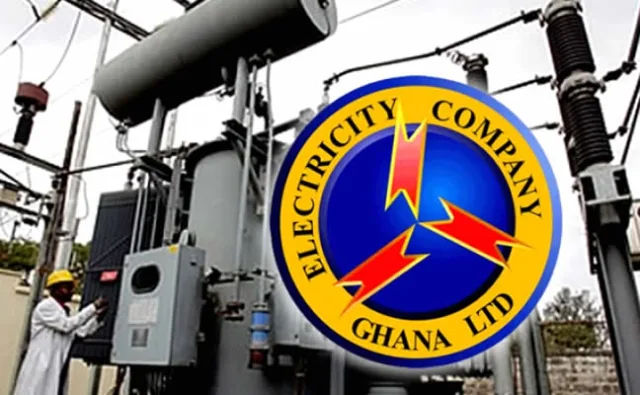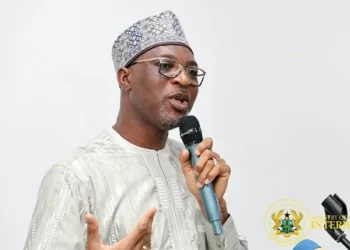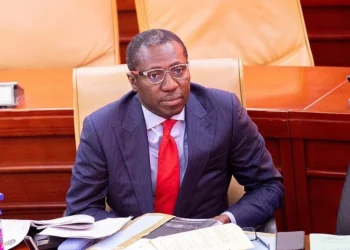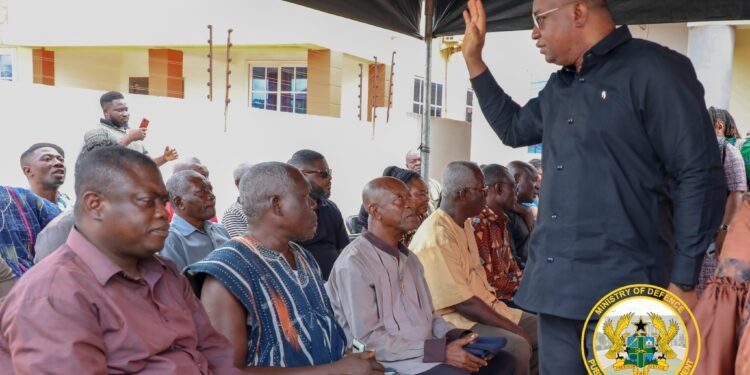The Africa Centre for Energy Policy (ACEP) has issued a stark warning about the dire financial situation facing the Electricity Company of Ghana (ECG), highlighting severe mismanagement and potential economic consequences for the country.
In a scathing press statement signed by Kodzo Yaotse, Policy Lead, Petroleum & Conventional Energy, ACEP painted a picture of a utility company in crisis. The organization accused ECG of maintaining a facade through media campaigns and celebrity endorsements while hiding deep-seated problems that threaten the very existence of the company and the nation’s budget sustainability.
“For the past few years, the public has been shouldering the financial burden of subsidising ECG’s operations, raising serious concerns about the political will to reform the utility company and push it to operate with a business-oriented mindset.
“Despite longstanding signs of inefficiency, politicians have failed to take decisive action to fix ECG.”
Kodzo Yaotse, Policy Lead, Petroleum & Conventional Energy
Since the inception of the IMF program in 2022, a major condition was for the government to establish systems to eliminate recurring under-recoveries borne by the budget. However, ACEP stated that there has been no sign of improvement.
A significant focus of ACEP’s statement was the dire state of ECG’s revenue collection. Despite claims by the company that digitalization efforts, such as the introduction of the new ECG PowerApp in January 2023, have improved revenue collection, the opposite appears to be true.
ACEP revealed that the company’s financial losses have ballooned. Between 2017 and 2022, ECG’s losses escalated from GHS 295 million to a staggering GHS 9.7 billion.
More alarmingly, the Public Utilities Regulatory Commission (PURC) reported that under-recoveries for the period from August 2023 to July 2024 amounted to GHS 13.6 billion. The average revenue collection rate during this period was a mere 43%, indicating severe inefficiencies.
“This poor performance raises significant doubts about the effectiveness of the touted digitalization efforts. The switch from the ‘ECG Power’ app to the new ECG PowerApp appears to have been driven more by procurement considerations than genuine efficiency improvements.”
Kodzo Yaotse, Policy Lead, Petroleum & Conventional Energy
ACEP further criticized ECG for failing to properly account for the limited revenue it does collect. The company operates 61 accounts through 16 banks, refusing to make details of these accounts visible to auditors. This lack of transparency has led to accusations of mismanagement and abuse of funds.
“The PURC’s recent letter to the Energy Minister rehashes an old problem that has been known for years. The Commission’s inability to enforce its directives illustrates the extent to which ECG has become ungovernable.”
Kodzo Yaotse, Policy Lead, Petroleum & Conventional Energy
Alleged Mismanagement

ACEP also raised concerns about the controversial contract between ECG and Hubtel, the company tasked with managing ECG’s payment system. According to the press statement, the outsourcing arrangement came at an exorbitant cost.
ACEP revealed that the development and maintenance of the payment platform amounted to about GHS 171.8 million, with service charges costing over GHS 100 million between November 2022 and December 2023 alone. Additionally, ACEP noted that Hubtel receives 0.95% of all revenues collected as part of the agreement.
Contradictions in financial reporting further fueled ACEP’s suspicion. While ECG’s contract suggests a framework cost of GHS 171.8 million, Hubtel previously reported that the platform development cost US$25 million (GHS 315 million). ACEP called for a thorough audit of the contract to ensure transparency and value for money.
ACEP’s press statement also addressed ECG’s troubling handling of exchange rates.
“In many instances, the exchange rate reported by ECG to the cash waterfall committee was significantly higher than the inter-bank exchange rate.
“This exchange rate manipulation created a net exchange loss of about GHS 6.5 billion in 2022 (from GHS 609 million in 2021) and about GHS 7 billion in 2023.”
Kodzo Yaotse, Policy Lead, Petroleum & Conventional Energy
ACEP raised this issue through the Right to Information (RTI) process, requesting historical exchange rates used by ECG. However, ECG failed to provide the information, citing the complexity and time required to compile the data.
The manipulation of exchange rates raises serious concerns about ECG’s ability to pay its suppliers, placing further strain on the energy sector. “This level of manipulation redirects public resources from legitimate expenditure programs,” the statement emphasized, hinting at broader economic ramifications.
Economic Implications

The financial mismanagement and inefficiency at ECG, according to ACEP, are not just internal issues but threaten the entire country’s economy. ECG’s inability to pay its independent power producers (IPPs) and gas suppliers has already prompted some IPPs, such as Karpower, to draw down on payment guarantees.
“Karpower, for example, has drawn down about US$112 million to settle the debt owed to them. On the gas side, drawdowns on Standard Chartered Bank Letters of Credit(LCs) by the OCTP partners have an outstanding balance of about US$400 million to be settled by the government.”
Kodzo Yaotse, Policy Lead, Petroleum & Conventional Energy
If these debts continue to accumulate, Ghana risks plunging into another debt crisis, which would severely undermine the progress made during its domestic and international debt restructuring.
To address the pressing issues at ECG, ACEP offered several recommendations. Chief among them is a call for the PURC to reassert its regulatory authority over ECG, including implementing measures to ensure transparency in revenue collection and spending. ACEP also urged an immediate audit of the Hubtel contract to clarify discrepancies and verify payments made to the company.
“We urge the government to take immediate action to address these issues. The current management of ECG should be relieved of their duties and replaced with effective and transparent leadership to salvage the company and alleviate the fiscal burden on the state.”
Kodzo Yaotse, Policy Lead, Petroleum & Conventional Energy
ACEP warned that political lethargy in reforming ECG has already cost Ghana billions of dollars. Without urgent action, the situation is likely to worsen, with devastating consequences for the nation’s budget and energy sector.
READ ALSO: Reform UK Aims to Build Grassroots Momentum Nationwide























